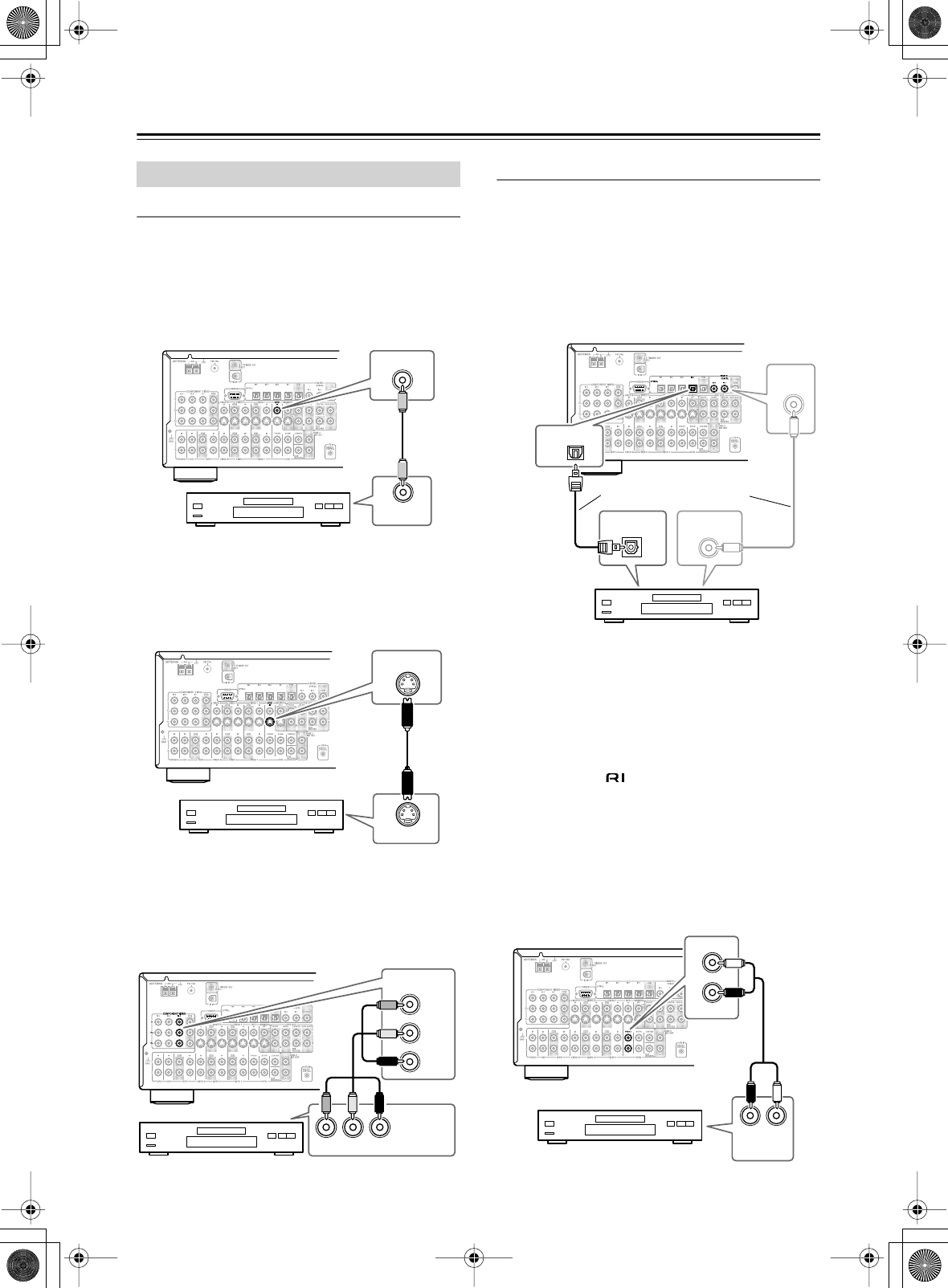
28
Connecting the AV receiver
—Continued
Video Connections
You only need to use one of the following connection
methods.
■
Using Composite Video
Use a composite video cable to connect the AV receiver’s
V DVD IN jack to the composite video output on your
DVD player, as shown.
■
Using S-Video
Use an S-Video cable to connect the AV receiver’s
S DVD IN jack to the S-Video output on your DVD
player, as shown.
■
Using Component Video
Use a component video cable to connect the AV
receiver’s COMPONENT VIDEO IN1 jacks to the com-
ponent video output on your DVD player, as shown.
•Your TV must also be connected via component video.
Audio Connections
■
Using Coaxial or Optical Connections
• Use an optical digital audio cable to connect one of the
AV receiver’s OPTICAL DIGITAL IN jacks to the
optical output on your DVD player, as shown.
OR
• Use a coaxial digital audio cable to connect one of the
AV receiver’s COAXIAL DIGITAL IN jacks to the
coaxial output on your DVD player, as shown.
Initially, the OPTICAL IN1 jack is assigned to the DVD
input source. If you connect your DVD player to a dif-
ferent digital input, you’ll need to reassign the DVD
input source (see page 42).
■
Using Analog Connections
Even if your DVD player is connected digitally (optical
or coaxial), to use , or to record audio from your
DVD player, you’ll need to make an analog connection
as well.
Use an analog audio cable to connect the AV receiver’s
DVD IN L/R jacks to the analog audio output on your
DVD player, as shown.
If your DVD player has stereo (L/R) and multichannel
outputs, be sure to use the left and right outputs.
Connecting a DVD Player
VIDEO OUT
IN
DVD
DVD player
S VIDEO OUT
DVD
IN
DVD player
COMPONENT
VIDEO OUT
COMPONENT VIDEO
IN1
Y
P
B
PR
YPB PR
DVD player
DIGITAL
IN
COAXIAL
DIGITAL OUT
OPTICAL
DIGITAL OUT
COAXIAL
OPTICAL
IN1
Connect one or the other
DVD player
LR
AUDIO
OUTPUT
L
R
DVD
FRONT
DVD player


















